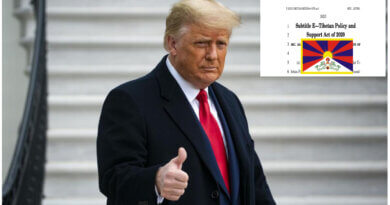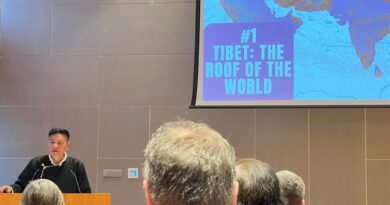China upset over India-Japan agreement on South China Sea
TOI
Beijing: China expressed dissatisfaction on Monday over India-Japan agreement concerning the freedom of navigation in South China Sea. The agreement was signed during Japanese Prime Minister Shinzo Abe’s recent visit to New Delhi.
Chinese foreign ministry spokesman Hong Lei emphasized that Beijing was justified in carrying out activities in South China Sea because the concerned islands were part of its territory.
“We hope countries outside the region respect the efforts of regional countries in maintaining peace and stability of South China Sea, instead of doing the opposite,” Hong said, a statement signifying deep disapproval.
Several countries, including Vietnam and Malaysia, have opposed construction and shipping by the Chinese Navy in and around the disputed islands in South China Sea. The United States and Japan too oppose Chinese activities, saying these would impede freedom of navigation.
The India-Japan agreement calls on all parties to refrain from unilateral actions that could endanger peace. China has been opposed to India, Japan and the US, which are outside the South China Sea region, voicing their opinion about the island dispute. Hong said Chinese activities were “justified, reasonable and lawful, targeting no country and impeding in no way the freedom of navigation and overflight in South China Sea”.
Hong also objected to India’s invitation to Japan to participate in the Malabar naval exercises in the Indian Ocean.
“As for Japan’s participation in the relevant military exercises, China’s position is very clear. Relevant countries should not provoke confrontation and create tension in the region,” he said. On India-Japan agreement on Bullet train, Hong said China too is ready to speed up its cooperation with India on high-speed railways.
Asian countries drive national development through infrastructure construction, Hong said, adding, “China and India are also cooperating in the high-speed railway sector. We stand ready to move forward relevant cooperation together with the Indian side.”




